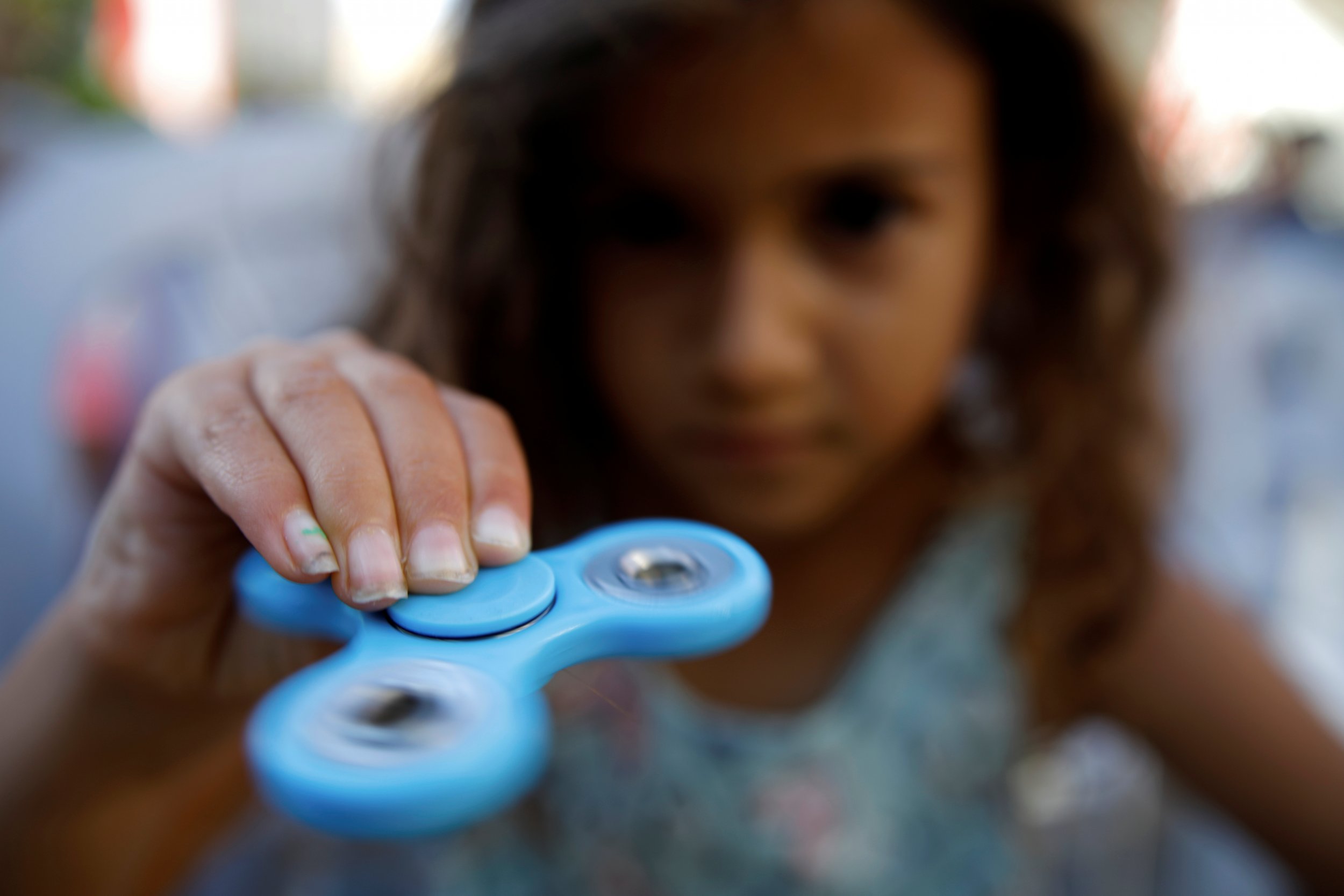
You probably know what a fidget spinner is by now. If you have a child old enough to sling a yo-yo, pound a fist into some GAK or build up a collection of POGs, you definitely do. The latest fad sweeping middle schools across America is a palm-sized, three-pronged device that spins with the help of ball bearings inside. Unlike fads of the past, however, the fidget spinner was designed with a constructive purpose: to relieve stress, not to disrupt third-period social studies.
Related: Anxiety, stress and depression at all-time high among Americans
Though invented by chemical engineer Catherine Hettinger in the early '90s, fidget spinners did not become popular until recently. In December, Forbes touted them as "must-have" office toys. From there, they found their way onto Reddit, YouTube and, ultimately, into the pockets of middle-schoolers. Their rise has been meteoric. Take it from Google.

But do they really relieve anxiety and curb ADHD, as many have claimed? Not really, according to experts.
"I know there's lots of similar toys, just like there's lots of other games and products marketed toward individuals who have ADHD, and there's basically no scientific evidence that those things work across the board," Scott Kollins, a clinical psychologist and professor at Duke University, recently told NPR.
"It's important for parents and teachers who work with kids who have ADHD to know that there are very well studied and documented treatments that work, and that they're out there, so there's not really quick and easy fixes like buying a toy," he added. "It's important that people don't get into trying these fads when we do have treatments that can help these kids."
Nevertheless, this is how they have been marketed. Pretty much every listing for a version of the toy on Amazon notes its stress-relieving properties. The Triune Spinner by Pocket Fidget, selling for $24.99, is promoted as a "Fast EDC Fidget Toy for Increased Focus, Stress Relief, ADHD, Autism, and Anxiety." The D-JOY Tri-Spinner Fidget Toy, which goes for only $3.99, is marketed as a "stress reliever" that can "reduce anxiety." Another claims to be "perfect For ADD, ADHD, Anxiety, and Autism." It also glows in the dark.
The ostensibly scientific benefits to using a fidget spinner have undoubtedly rationalized the decision of countless parents to buy the toy for their children. More than six million children in America have been diagnosed with ADHD, and if an over-active mind can be tempered for the price of a nice lunch, why not give it a whirl?
But the director of the Attention, Impulsivity and Regulation program at the UC Davis MIND Institute, Julie Schweitzer, also said there is no evidence fidget spinners can help with ADHD. "There are other ways of doing it than these toys," she recently told the Sacramento Bee. "I can't say that they for sure don't work, but there's no evidence to support that they do and it's obvious they're going to be distracting to other people."
This last point—that they are distracting to other people—has become a major problem that has almost guaranteed that they are detrimental to, rather than helpful with, a child's ability to focus. They have become pervasive in middle school classrooms, where kids use them not to hone their attention to their studies, but to distract from them. Other children using them as well only adds more distraction.
"From what I've seen, [the fidget spinner] is becoming so ubiquitous that it's overtaking the classroom and becoming a huge distraction," Schweitzer told the Bee. "To me, it's common sense. If you give somebody a toy or they could be doing classwork, what's going to be more interesting?"
Uncommon Knowledge
Newsweek is committed to challenging conventional wisdom and finding connections in the search for common ground.
Newsweek is committed to challenging conventional wisdom and finding connections in the search for common ground.
About the writer
Ryan Bort is a staff writer covering culture for Newsweek. Previously, he was a freelance writer and editor, and his ... Read more
To read how Newsweek uses AI as a newsroom tool, Click here.








